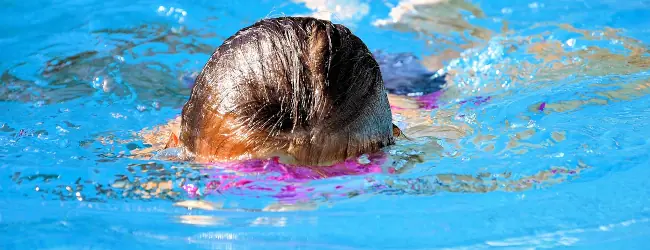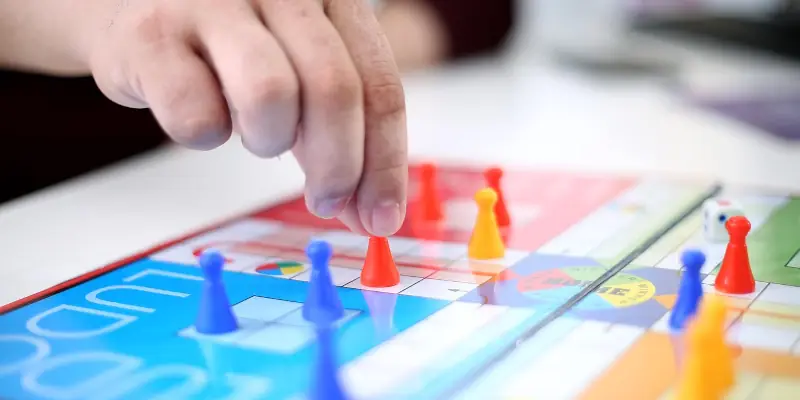In the previous article (this article), I introduced an example of learning swimming from the perspective of logical people. Logical sense makes it efficient for us to realize our wants.
Based on it, I enhanced a thinking tool I made before to develop our logical strength. Today, I will introduce it.
How to realize our dreams logically
Sometimes, we want to think more logically. Rationality makes it easier to realize our dreams, as I explained in the previous article.
It is far more efficient than using empathy. Although empathy gives us a clear image of a goal, it eliminates the unfamiliar. That is why the more we proceed, the more painful it becomes. Empathy doesn’t allow us to change.

On the other hand, rationality makes the unfamiliar familiar. Although it is difficult to predict the future, we can proceed with the fun of experiencing new things.
Proceeding while entertaining
In other words, logical sense makes learning entertaining. Knowing and experiencing new things is enjoyable, not painful. We can develop our skills based on our individuality.
Repeating it will give us a new future in which we can show our talents, even if they are unique.

However, we sometimes don’t know how to think logically, especially how to make our wants happen rationally.
To solve this problem, I improved the thinking tool of minimalism in production I created before (this article). This might make it easier to realize our wants reasonably.
The key to logical thinking
This thinking tool is for making an abstract goal specific and rational.
The key to logical thinking is to find the essential factors from a broader perspective.

For example, if we want to acquire a swimming skill, we can guess, “Swimming consists of three parts: floating in the water, breathing well, and gaining force to go forward with arms and legs.”
This idea is more reasonable than the concept ‘To swim, we have to move our legs and arms.’ Moving legs and arms is only a part of swimming skill.
Seeing our wants from a broader perspective
To give another example, if we want to cook for ourselves, we can predict, “Cooking is easy. Chop meats and vegetables, heat them enough, and salt and pepper them!”
Although rough, it allows us to make a reasonable meal, even if we are unfamiliar with cooking.

It is more rational than the concept ‘To cook well, imagine I am a professional chef and act like him!’ Behavior and appearance are only a part of cooking skills.
That is why we have to recognize our wants from a broader perspective.
What are stages?
To see the big picture of our wants, we introduce the concept of stages.
Let’s assume that there are multiple stages to achieve something.

For example, swimming has three stages: floating in the water, breathing well, and gaining force to go forward.
Cooking for ourselves has three stages: chopping meats and vegetables, heating them enough, and salting and peppering them.
These stages can also be called principles.
The nature of stages
Stages have the following qualities:
- Interchangeable: Stages are usually interchangeable in order. We can choose any of them first. For example, in swimming, we can also train breathing first. Getting used to it allows us to try floating more easily. In cooking, there is no problem even if we add enough heat to the ingredients first. Then, we chop them.
- Scalable: Stages work even when we change the scale. It means we can downsize. For example, we can practice swimming in the sea, rivers, and small pools. We don’t have to cook for many people from the beginning.
- Executable: We eliminate stages that we cannot try immediately or don’t know how to do it. Examples are making a lot of money, becoming famous, and preparing enough professional tools.

Stages have such natures.
Steps of realizing our wants
Then, let’s create rational approaches to realize our wants.
In this thinking tool, we will proceed with the following steps:
- Set your goal. What do you want to accomplish?
- Divide the goals into 3 to 5 stages. You have to see your goal from a broader perspective.
- Make them as small-scale as possible to verify whether they work. Within a day or half a day is ideal at the very beginning.
- Let’s try it lightly!
- If you are unsatisfied with the outcome, try to improve these stages again.
- If you fail no matter how many you try, doubt and modify the goal itself.
- If you are satisfied with the first result, they are rational stages. Scale them up gradually and repeat them with fun until complete satisfaction!

Elements that rationality requires
In my current opinion, rationality requires the following three elements:
- Seeing it from as broad a perspective as possible
- Trying it as small as possible
- Finding efficient principles (stages) as early as possible
They make abstract things concrete, unfamiliar things familiar, and fear of the unknown curiosity.

We think that this world is made up of similar shapes. For example, the small terrain resembles the shape of the universe.
Cooking would be the same. Great principles (stages) of cooking would look like we are looking at a universe. Cooking is the universe! (Perhaps.)
Happiness is the same. We are a part of the universe that resembles the universe.
I sometimes wonder what the world look like if I pursue rationality. It might be the one without spirituality and rationality. We might be beings similar to gods. My rationality makes me feel so.
Conclusion
That is the thinking tool for making an abstract goal specific and rational.
The concept of stages would allow us to see the big picture of our wants.
It might make it easier to realize your wants rationally.
Thank you for reading this article. I hope to see you in the next one.


